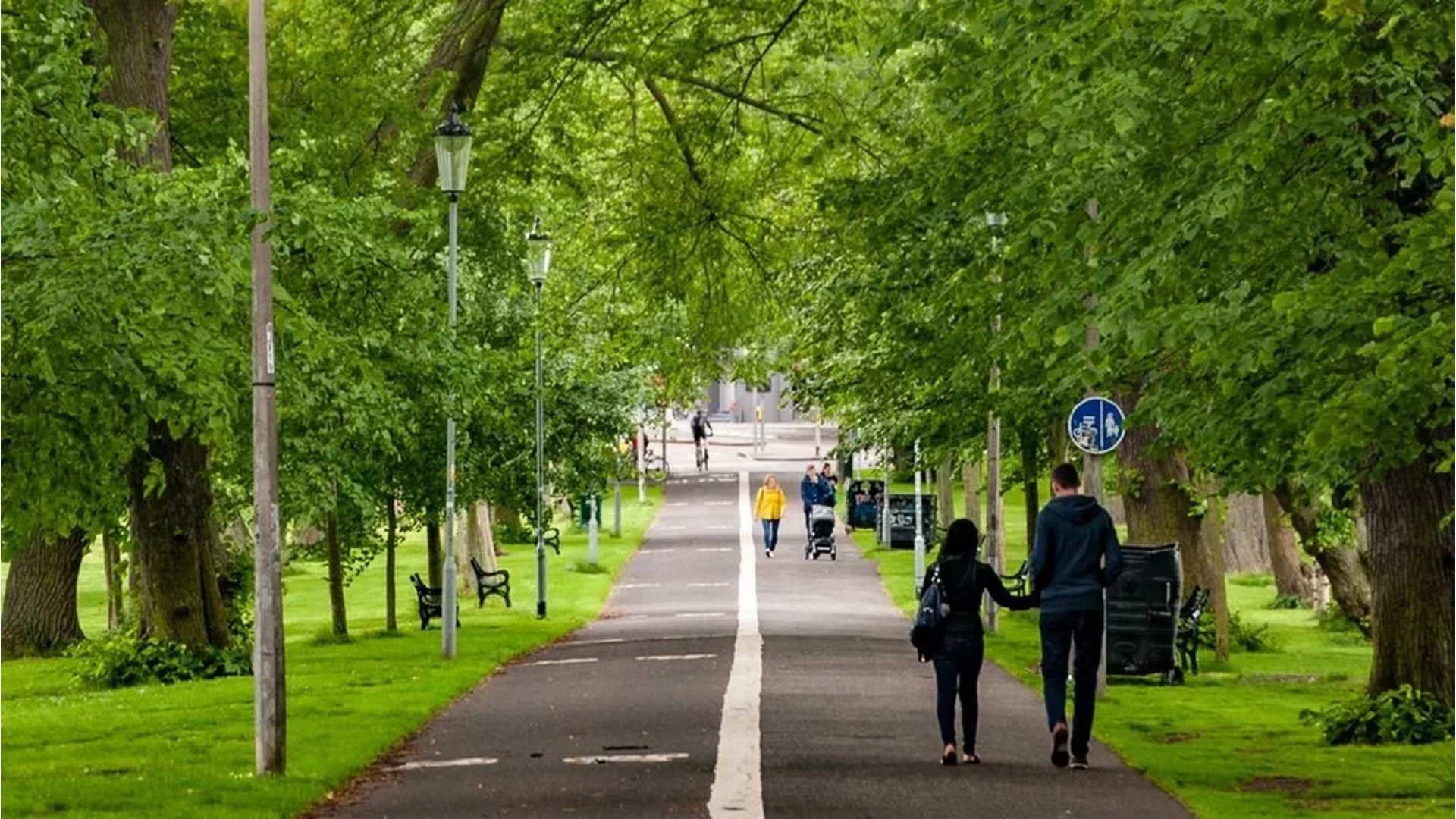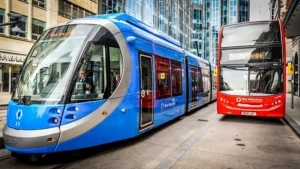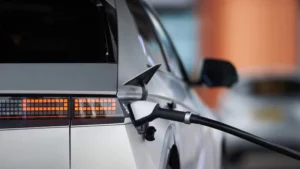The new Decarbonising Transport, let’s get moving together report is bringing recommendations on how to re-think travel demand, re-mode away from cars, and re-power transport away from fossil-fuels.
The report notes creating healthier, quieter places with cleaner air and generating new, green jobs are pressing issues across the UK. As the largest contributor to UK domestic Greenhouse Gas (GHG) emissions and major source of air pollution, the transport sector must decarbonise. The why is simple, but the ‘how’ has been less clear.
It says decarbonisation is not just some technocratic process. It is how we make sure that transport shapes the country and the economy in ways that are good. It’s about a second, green, industrial revolution, creating hundreds of thousands of new, skilled jobs, in some of the proud towns and cities that were the cradle of the first one. It’s not about stopping people doing things: it’s about doing the same things differently.
Convened by London Transport Museum as part of its Interchange thought leadership events and delivered by engineering, management and development consultancy Mott MacDonald in partnership with the international law firm Gowling WLG and global transportation company Thales GTS, a series of workshops were held around the UK, uniting heads of industry, local councils, regional government, transport operators, law firms, consultancies, charities and campaigners.
Key insights from the resulting report include:
- Public sector investment, policy and structure is important, but so too is cross-sectoral collaboration outside of the normal siloes
- The transport and energy sector must come together to help re-power transport systems
- Uptake of Electric Vehicles will help, but is only part of the answer and still brings congestion – improved public transport and greater active travel is needed, particularly for the first and last mile
- Location matters, one size does not fit all, what may be right for an urban environment may not be the best approach for a village, equally, what works in London may not work in the regions of the UK. A place-based systems approach is critical
- User-friendly real-time data is essential to encourage public transport, such as tracking when the next tram or bus arrives, and MaaS (mobility as a service) could improve access for remote and marginalised people and communities
The full recommendations can be seen in the new report, published today (Thursday, 2 March 2023), and says that whilst big issues such as policy and technology are key, that cross-sectoral systems thinking, collaboration and innovation can help make great progress.
Sam Mullins OBE, Director for London Transport Museum said, ‘The elephant of decarbonisation can seem like an impossibly big animal for a city or country to digest. The only solution is to tackle the beast in bite-sized chunks. This report is brimming with ideas, insights, case studies and recommendations about how to make travel more sustainable for everybody in the country, whether they live in an urban environment or in a village.’
Denise Bower OBE, Board Director at Mott MacDonald said, ‘The challenges posed by the climate crisis are intertwined and interrelated, and so our responses to them cannot be worked on in the traditional siloes. They must be connected and integrated at a system level.
‘The interconnected nature of our society means that we fail or succeed together, and the strength of this report lies in its success in bringing together organisations and individuals from a cross-section of the economy to discuss the practical steps needed to decarbonise and setting them out clearly so that we can move from words to action. Indeed, industry-wide collaborative efforts – like this report and the redrafted carbon management specification PAS 2080 – will be key to getting us to a net-zero world.’
London Transport Museum’s Interchange thought leadership programme held workshops in Leeds and Birmingham as well as London, with attendees hotly debating decarbonisation under three topics:
- re-thinking the times, frequency and our need for travel
- re-moding to greener forms of travel choices for all groups in society, whichever part of the country they live in
- re-powering those polluting modes of transport with cleaner fuels if “re-moding” is not possible
Attendees shared successful case studies including:
- The UK’s first solar powered ‘park and ride site’ from West Yorkshire Combined Authority to reduce car use
- The Midlands Connect Alternative Fuels for Rail research which suggested a combination of batteries and battery electric hybrids could be cheaper and faster than electrification alone
- The STARS (Sustainable Travel: Active, Responsible, Safe) programme from London Transport Museum on behalf of Transport for London which through schools and nurseries teaches 100,000 young children to choose active and safe travel
Katie Chesworth, Transport Specialist at Mott MacDonald and lead author of the Decarbonising Transport, let’s get moving together report said, ‘A cross sectoral approach to bridge the divides is key in breaking down barriers and bringing ideas. I was truly excited by the enthusiasm and creativity in all the workshops. Integrated and inter-connected solutions are vital. To be truly sustainable, a decarbonised transport system needs to work for all communities and users, specific environments, and create a better future for us all.’
Giles Clifford, Partner at Gowling WLG said, ‘As on all climate-related issues we need to move urgently to the real nuts and bolts of delivery. We are very pleased to see this report. As well as identifying guiding principles it gives tangible examples of successful strategies, and those who have delivered them, gathered from a series of workshops around the UK expertly presented by Mott Macdonald in collaboration with London Transport Museum, Thales GTS and ourselves. This report will contribute significantly to help all involved in generating their own plans, and we at Gowling WLG stand ready to support them.’
Andy Bell, UK Vice President for Thales Ground Transportation Systems (GTS) said: ‘Thales GTS welcomes the opportunity to be involved in this important new report which shines a light on the role transportation must play in our efforts to reduce carbon emissions. We are especially pleased to see the report recognising the importance of working together in achieving our ambitious environmental targets. This approach firmly aligns with Thales’ commitment to building strong local and global relationships with our customers and partners, and collaborating across the industry to address the challenges around decarbonisation.’
Alex Williams, Chief Customer and Strategy Officer at TfL said, ‘Creating an environmentally sustainable transport network to support London meeting its air quality and carbon targets is a key priority. We are committed to playing our part to achieve the Mayor of London’s goal of making London carbon neutral by 2030, which will help create a greener, biodiverse city that is resilient and well adapted to climate change.
‘Building a resilient transport network that has decarbonisation at its heart and adapting for future climate change requires engagement and collaboration across London, both within and beyond the transport sector. By working together, we can tackle the climate emergency and improve London’s environment and the health, safety and wellbeing of Londoners.
Sam Mullins OBE, Director for London Transport Museum concluded, ‘Our Interchange thought leadership events bring together experts from many different fields who may not usually find themselves in a room together. We hope you find this report informative and stimulating, and that by working together we can make it easier for local residents, industry, transport authorities and government to make the shift to net zero travel.’
The Decarbonising Transport, let’s get moving together report is produced by a leading global engineering management and development consultancy Mott MacDonald and London Transport Museum, in partnership with the international law firm Gowling WLG and global transportation company Thales GTS. The lead author of the report is Katie Chesworth a Technical Specialist in Transport Planning at Mott MacDonald.
The Decarbonising Transport, let’s get moving together report is available https://www.ltmuseum.co.uk/interchange/decarbonising-transport
(Picture – London Transport Museum)





















